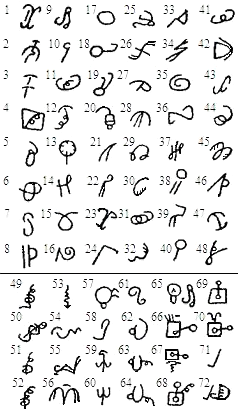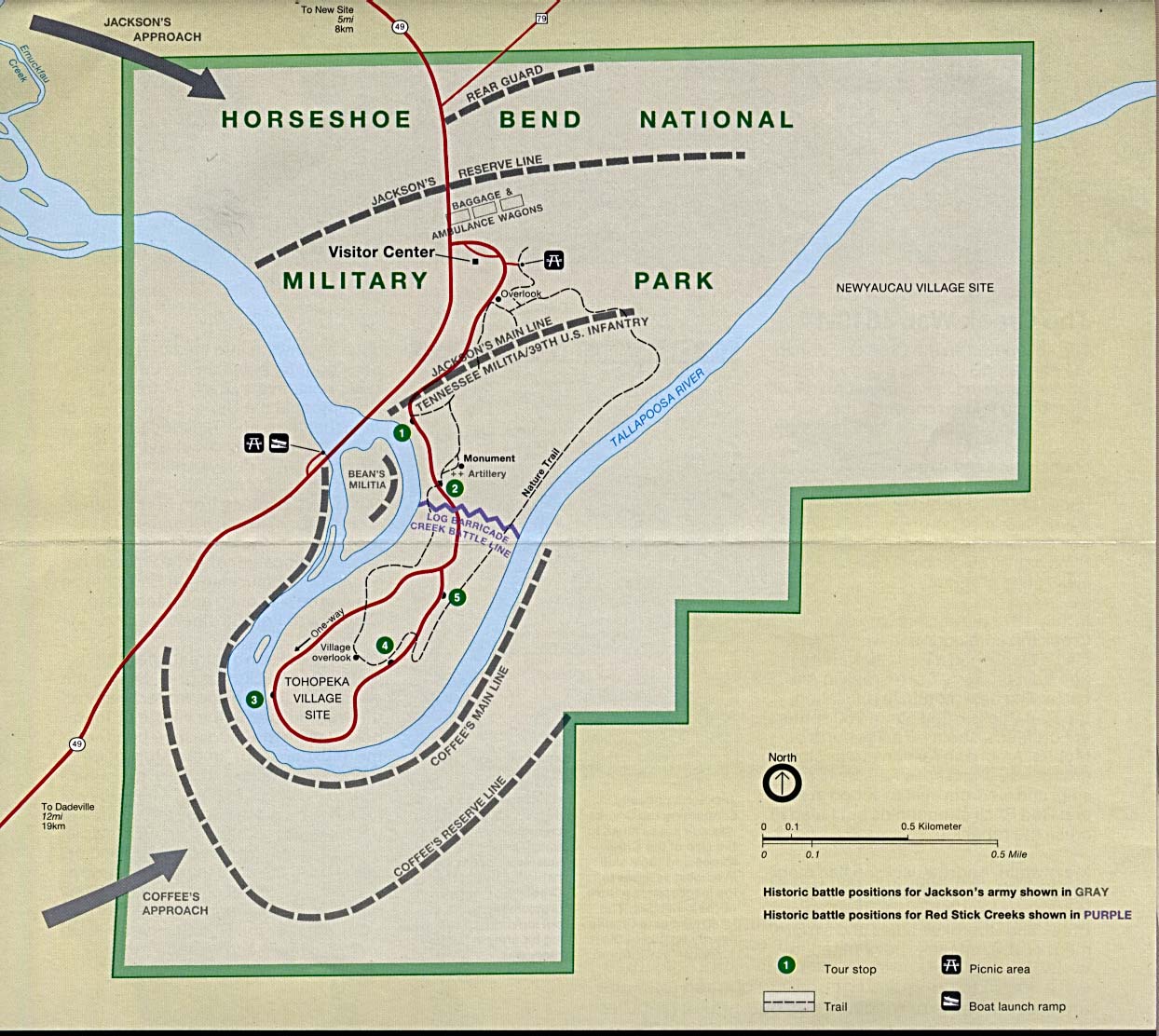|
Tenevil
{{more citations needed, date=February 2015 Tenevil (russian: Теневиль) (ca. 1890–1943?) was a Chukchi reindeer herder, living in the tundra near the settlement of Ust-Belaya in Russian province of Chukotka. Around 1927 or 1928 he independently invented a writing system for the Chukchi language. It has never been established with certainty whether the symbols in this writing system were ideograms/pictograms or whether the system was logogram-based. Researchers have noted the abstract character of the symbols, which may be an indirect evidence that this writing system is entirely Tenevil's invention. Tenevil's writing system was first described by the Russian ethnographer and writer Waldemar Bogoras in 1930. The writing system was never widely known: it was used entirely within Tenevil's family encampment. Apart from Tenevil himself, the writing system was used by his son, with whom he exchanged messages during shifts away at the reindeer pastures. Tenevil wrote his ... [...More Info...] [...Related Items...] OR: [Wikipedia] [Google] [Baidu] |
Chukchi Language
Chukchi , also known as Chukot, is a Chukotko–Kamchatkan language spoken by the Chukchi people in the easternmost extremity of Siberia, mainly in Chukotka Autonomous Okrug. The language is closely related to Koryak. Chukchi, Koryak, Kerek, Alutor, and Itelmen form the Chukotko-Kamchatkan language family. There are many cultural similarities between the Chukchis and Koryaks, including economies based on reindeer herding. Both peoples refer to themselves by the endonym ''Luorawetlat'' (ԓыгъоравэтԓьат ; singular ''Luorawetlan'' ԓыгъоравэтԓьан ), meaning "the real people". All of these peoples and other unrelated minorities in and around Kamchatka are known collectively as Kamchadals. ''Chukchi'' and ''Chukchee'' are anglicized versions of the Russian exonym ''Chukcha'' (plural ''Chukchi''). This came into Russian from ''Čävča'', the term used by the Chukchis' Tungusic-speaking neighbors, itself a rendering of the Chukchi word чавчыв , ... [...More Info...] [...Related Items...] OR: [Wikipedia] [Google] [Baidu] |
Ust-Belaya
Ust-Belaya (russian: Усть-Бе́лая; ckt, Куулючьын, ''Kuulûč’yn'') is a rural locality (a '' selo'') in Anadyrsky District of Chukotka Autonomous Okrug, Russia, located at the confluence of the Anadyr and the Belaya Rivers.Strogoff, p. 92 Population: Municipally, the settlement is subordinated to Anadyrsky Municipal District and incorporated as Ust-Belaya Rural Settlement. Geography The settlement lies on the banks of the Belaya River (so called because of the contrast between its waters and those of the Anadyr), near to where it flows into the Anadyr River. The Parapol-Belsky Lowlands lie to the west and the Anadyr Lowlands to the east. The village is situated on the northern slopes of the mountain, Gynryretyk (russian: Гынрырэтык, literally meaning "The Guardian"). History The area in the vicinity of the settlement was populated during neolithic times, and a toggled harpoon head found in a grave indicated that there was a viable walrus h ... [...More Info...] [...Related Items...] OR: [Wikipedia] [Google] [Baidu] |
Анадырь
Anadyr ( rus, Ана́дырь, a=Ru-Anadyr.ogg, r=Anadyr, p=ɐˈnadɨrʲ; Chukchi: , ''Kagyrgyn'', ; Southern Chukchi: Въэӈын, ''V"èňyn'') is a port town and the administrative center of Chukotka Autonomous Okrug, Russia, located at the mouth of the Anadyr River at the tip of a peninsula that protrudes into Anadyrsky Liman. Anadyr is the easternmost town in Russia; more easterly settlements, such as Provideniya and Uelen, do not have town status. It was previously known as ''Novo–Mariinsk'' (until 1923). Population: History Early history Although the town itself has only been in existence for just over a century, the origins of the name Anadyr are much older. The name initially derives from the Yukaghir word "''any-an''" meaning "''river''". When Semyon Dezhnev met Yukaghir people in the area, the indigenous name was corrupted to form "''Onandyr''", later Anadyrsk, the name of the '' ostrog'' (fort) upstream of the present-day settlement, from which the current nam ... [...More Info...] [...Related Items...] OR: [Wikipedia] [Google] [Baidu] |
1943 Deaths
Events Below, the events of World War II have the "WWII" prefix. January * January 1 – WWII: The Soviet Union announces that 22 German divisions have been encircled at Stalingrad, with 175,000 killed and 137,650 captured. * January 4 – WWII: Greek-Polish athlete and saboteur Jerzy Iwanow-Szajnowicz is executed by the Germans at Kaisariani. * January 11 ** The United States and United Kingdom revise previously unequal treaty relationships with the Republic of China. ** Italian-American anarchist Carlo Tresca is assassinated in New York City. * January 13 – Anti- Nazi protests in Sofia result in 200 arrests and 36 executions. * January 14 – 24 – WWII: Casablanca Conference: Franklin D. Roosevelt, President of the United States; Winston Churchill, Prime Minister of the United Kingdom; and Generals Charles de Gaulle and Henri Giraud of the Free French forces meet secretly at the Anfa Hotel in Casablanca, Morocco, to plan the Allied European strategy for t ... [...More Info...] [...Related Items...] OR: [Wikipedia] [Google] [Baidu] |
1890s Births
Year 189 ( CLXXXIX) was a common year starting on Wednesday (link will display the full calendar) of the Julian calendar. At the time, it was known as the Year of the Consulship of Silanus and Silanus (or, less frequently, year 942 ''Ab urbe condita''). The denomination 189 for this year has been used since the early medieval period, when the Anno Domini calendar era became the prevalent method in Europe for naming years. Events By place Roman Empire * Plague (possibly smallpox) kills as many as 2,000 people per day in Rome. Farmers are unable to harvest their crops, and food shortages bring riots in the city. China * Liu Bian succeeds Emperor Ling, as Chinese emperor of the Han Dynasty. * Dong Zhuo has Liu Bian deposed, and installs Emperor Xian as emperor. * Two thousand eunuchs in the palace are slaughtered in a violent purge in Luoyang, the capital of Han. By topic Arts and sciences * Galen publishes his ''"Treatise on the various temperaments"'' (aka ... [...More Info...] [...Related Items...] OR: [Wikipedia] [Google] [Baidu] |
Uyaquq
Uyaquq (also Uyaquk or Uyakoq; sometimes referred to in English as Helper Neck) (ca. 1860–1924) was a member of the Yup'ik people who became a Helper in the Moravian Church, noted for his linguistic abilities. He went from being an illiterate adult to inventing a series of writing systems for his native language and then producing translations of the Bible and other religious works in a period of five years. Uyaquq was born into a family of shamans in the lower Kuskokwim River valley of central Alaska in the mid-1860s. Even by the standards of the day, Uyaquk was a small man. He became a shaman in early adulthood, but converted to Christianity after his father converted. Although his father became a Russian Orthodox, Uyaquk became a leader and missionary in the Alaskan Moravian Church. His name means "Neck"Jacobson, Steven A. (2012)Yup'ik Eskimo Dictionary, 2nd edition Alaska Native Language Center. in English and he was called that by some English speakers. As a mission ... [...More Info...] [...Related Items...] OR: [Wikipedia] [Google] [Baidu] |
Sequoyah
Sequoyah (Cherokee: ᏍᏏᏉᏯ, ''Ssiquoya'', or ᏎᏉᏯ, ''Se-quo-ya''; 1770 – August 1843), also known as George Gist or George Guess, was a Native American polymath of the Cherokee Nation. In 1821, he completed his independent creation of the Cherokee syllabary, making reading and writing in Cherokee possible. His achievement was one of the few times in recorded history that an individual who was a member of a pre-literate group created an original, effective writing system. His creation of the syllabary allowed the Cherokee nation to be one of the first North American Indigenous groups to have a written language. Sequoyah was also an important representative for the Cherokee nation, by going to Washington, D.C. to sign two relocations and trading of land treaties. After seeing its worth, the people of the Cherokee Nation rapidly began to use his syllabary and officially adopted it in 1825. It unified a forcibly divided nation with new ways of communication and a se ... [...More Info...] [...Related Items...] OR: [Wikipedia] [Google] [Baidu] |
Yuri Rytkheu
Yuri Sergeyevich Rytkheu ( rus, Ю́рий Серге́евич Рытхэ́у, , ˈjʉrʲɪj sʲɪrˈɡʲe(j)ɪvʲɪtɕ rɨtˈxɛʊ; ckt, Ю́рий Серге́евич Рытгэ́в; 8 March 1930 – 14 May 2008) was a Chukchi writer, who wrote in both his native Chukchi and in Russian. He is considered to be the father of Chukchi literature. Early life Yuri Rytkheu was born 8 March 1930 to a family of trappers and hunters. His birthplace, the village of Uelen, was then in the Chukotka District, Far Eastern Territory, RSFSR, USSR; it is now part of the Chukotka Autonomous Okrug. His grandfather was a shaman. At birth, he was given the name "Rytgėv", which means "forgotten" in the Chukchi language (from the Chukchi word ''"рытгэватъё" (rytgėvatʺjo'') – "unremembered" or "forgotten"). Since Soviet institutions did not recognize Chukchi names and the Chukchi do not commonly use surnames, in order to obtain his passport he used his first name as his surnam ... [...More Info...] [...Related Items...] OR: [Wikipedia] [Google] [Baidu] |
Anadyr River
The Anadyr (russian: Ана́дырь; Yukaghir: Онандырь; ckt, Йъаайваам) is a river in the far northeast of Siberia which flows into the Gulf of Anadyr of the Bering Sea and drains much of the interior of Chukotka Autonomous Okrug. Its basin corresponds to the Anadyrsky District of Chukotka. Geography The Anadyr is long and has a basin of . It is frozen from October to late May and has a maximum flow in June with the snowmelt. It is navigable in small boats for about to near Markovo. West of Markovo it is in the Anadyr Highlands (moderate mountains and valleys with a few trees) and east of Markovo it moves into the Anadyr Lowlands (very flat treeless tundra with lakes and bogs). The drop from Markovo to the sea is less than . It rises at about 67°N latitude and 171°E longitude in the Anadyr Highlands, near the headwaters of the Maly Anyuy, flows southwest receiving the waters of the rivers Yablon and Yeropol, turns east around the Shchuchy Range ... [...More Info...] [...Related Items...] OR: [Wikipedia] [Google] [Baidu] |






